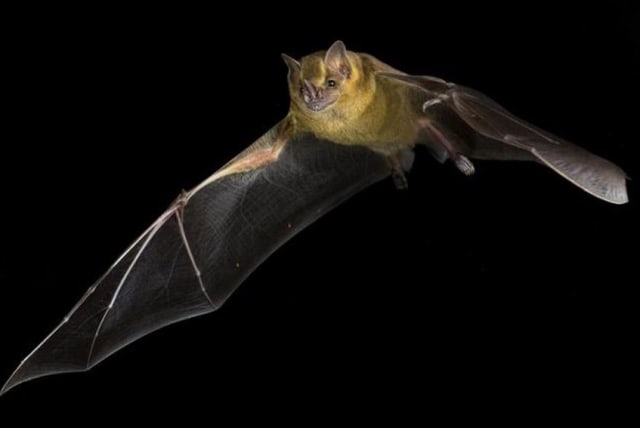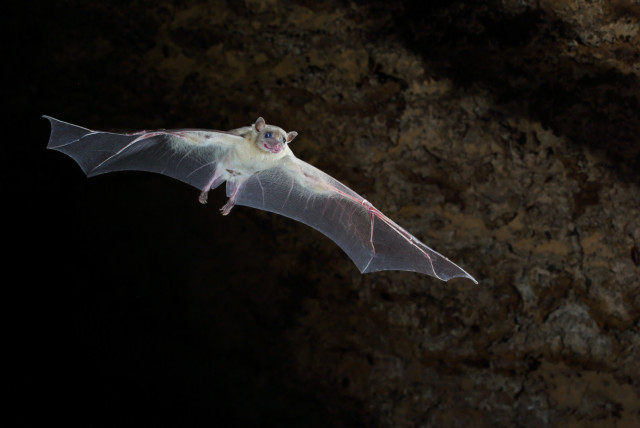How bats evolved to avoid cancer - study

These characteristics make bats an interesting animal to study because they may have implications for human health.
Bats are pretty lucky animals. Not only do these mammals fly impressive distances, have strong immune systems, survive most infections and live long – about 20 years in the wild, and some even 30 years – but they also rarely get cancer.
A new study in Genome Biology and Evolution, published by Oxford University Press and entitled “Long-read sequencing reveals rapid evolution of immunity and cancer-related genes in bats,” showed that rapid evolution in bats may account for the animals’ extraordinary ability to both host and survive infections, as well as avoid cancer.
Unfortunately, bats are also thought to have played a role in the emergence of COVID-19. The ability of bats to tolerate viral infections may stem from unusual features of their innate immune response.
These characteristics make bats an interesting animal to study, because they may have implications for human health, said lead authors Armin Scheben and W. Richard McCombie at New York’s Cold Spring Harbor Laboratory.
For example, by better understanding the mechanisms of the bat immune system that allows bats to tolerate viral infections, researchers may be better able to prevent disease outbreaks from animals to people.
Bats susceptibility to cancer is different than other animals
Comparative genomic analyses of bats and cancer-susceptible mammals may eventually provide new information on the causes of cancer and the links between cancer and immunity, they wrote. Studies of bats and other organisms complement studies based on mouse models; mice are more amenable than bats to experimental manipulation, but present fewer characteristics with implications for human disease.
Researchers using the Oxford Nanopore Technologies long-read platform, and bat samples collected with help from the American Museum of Natural History in Belize, sequenced the genomes of two bat species – the Jamaican fruit bat and the Mesoamerican mustached bat – and carried out a comprehensive comparative genomic analysis with a diverse collection of bats and other mammals.
The researchers found genetic adaptations in six DNA repair-related proteins and 46 proteins in bats that were cancer-related, meaning that researchers have previously found such proteins suppress cancer. Notably, the study found these altered cancer-related genes were enriched more than two-fold in the bat group compared to other mammals.
“The robust immune systems of bats rely on both bat-wide and lineage-specific evolution in the immune gene repertoire, suggesting diverse immune strategies. Our study provides new genomic resources for bats and sheds new light on the extraordinary molecular evolution in this critically important group of mammals,” they wrote.
“By generating these new bat genomes and comparing them to other mammals, we continue to find extraordinary new adaptations in antiviral and anticancer genes,” said Scheben. “These investigations are the first step towards translating research on the unique biology of bats into insights relevant to understanding and treating aging and diseases, such as cancer, in humans.”
Jerusalem Post Store
`; document.getElementById("linkPremium").innerHTML = cont; var divWithLink = document.getElementById("premium-link"); if (divWithLink !== null && divWithLink !== 'undefined') { divWithLink.style.border = "solid 1px #cb0f3e"; divWithLink.style.textAlign = "center"; divWithLink.style.marginBottom = "15px"; divWithLink.style.marginTop = "15px"; divWithLink.style.width = "100%"; divWithLink.style.backgroundColor = "#122952"; divWithLink.style.color = "#ffffff"; divWithLink.style.lineHeight = "1.5"; } } (function (v, i) { });

